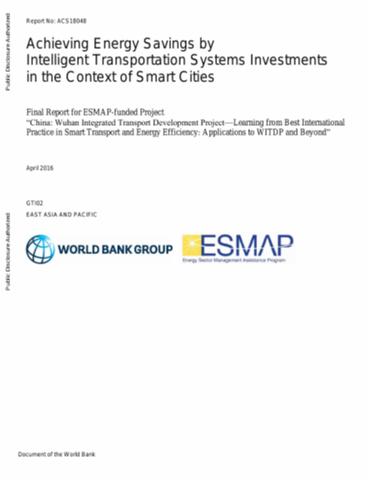The World Bank is a vital source of financial and technical assistance to developing countries around the world. We are not a bank in the ordinary sense but a unique partnership to reduce poverty and support development. The World Bank Group has two ambitious goals: End extreme poverty within a generation and boost shared prosperity.
- To end extreme poverty, the Bank's goal is to decrease the percentage of people living on less than $1.25 a day to no more than 3% by 2030.
- To promote shared prosperity, the goal is to promote income growth of the bottom 40% of the population in each country.
The World Bank Group comprises five institutions managed by their member countries.
The World Bank Group and Land: Working to protect the rights of existing land users and to help secure benefits for smallholder farmers
The World Bank (IBRD and IDA) interacts primarily with governments to increase agricultural productivity, strengthen land tenure policies and improve land governance. More than 90% of the World Bank’s agriculture portfolio focuses on the productivity and access to markets by small holder farmers. Ten percent of our projects focus on the governance of land tenure.
Similarly, investments by the International Finance Corporation (IFC), the World Bank Group’s private sector arm, including those in larger scale enterprises, overwhelmingly support smallholder farmers through improved access to finance, inputs and markets, and as direct suppliers. IFC invests in environmentally and socially sustainable private enterprises in all parts of the value chain (inputs such as irrigation and fertilizers, primary production, processing, transport and storage, traders, and risk management facilities including weather/crop insurance, warehouse financing, etc
For more information, visit the World Bank Group and land and food security (https://www.worldbank.org/en/topic/agriculture/brief/land-and-food-security1
Resources
Displaying 391 - 395 of 4907Achieving Energy Savings by Intelligent Transportation Systems Investments in the Context of Smart Cities
Faced with the challenge of providing adequate transport services with limited resources, cities have, for several decades, been investing in Intelligent Transportation Systems (ITS). ITS utilize Information and Communications Technology (ICT) to make more efficient use of existing transport infrastructure with the aim of improving transport services and reducing congestion, accidents, and air pollution.
Mangroves as Protection from Storm Surges in a Changing Climate
Adaptation to climate change includes
addressing sea level rise and increased storm surges in many
coastal areas. Mangroves can substantially reduce the
vulnerability of the adjacent coastal land from inundation
and erosion. However, climate change poses a large threat to
mangroves. This paper quantifies the coastal protection
provided by mangroves for 42 developing countries in the
current climate, and a future climate change scenario with a
The Labor Content of Exports Database
This paper develops a novel methodology
to measure the quantity of jobs and value of wages embodied
in exports for a large number of countries and sectors for
intermittent years between 1995 and 2011. The resulting
Labor Content of Exports database allows the examination of
the direct contribution of labor to exports as well as the
indirect contribution via other sectors of the economy for
skilled and unskilled labor. The analysis of the new data
Impact of Climate Change and Aquatic Salinization on Fish Habitats and Poor Communities in Southwest Coastal Bangladesh and Bangladesh Sundarbans
Fisheries constitute an important source
of livelihoods for tens of thousands of poor people in the
southwest coastal region of Bangladesh living near the
UNESCO Heritage Sundarbans mangrove forest, and they supply
a significant portion of protein for millions. Among the
various threats fisheries in the southwest coastal region
and Sundarbans mangrove forest will face because of climate
change, adverse impacts from increased aquatic salinity
New Opportunities and Old Constraints
Agriculture sector performance in Serbia is characterized by both stagnant sector growth and a substantial increase in agricultural exports. This report describes the reasons for this paradox and its implications for future sector policy. Observed export growth is narrowly based, despite Serbia’s potential to produce and export a range of crop and livestock products. This export growth has been offset by stagnation or long-term contraction elsewhere in the sector. Current agricultural policy is not conducive to more broad based growth.







